
Three albums and three distinct groupings in this essential remaster & reissue of two late 60s and one 70s Impulse! albums from saxophonist and composer Archie Shepp, in configurations of septets and nonets with luminaries of the day performing Shepp's rhythm-centric jazz focused on the Afrocentric experience, drawing on blues and spirituals in free jazz settings.
In Stock
Quantity in Basket: 1
Log In to use our Wish List
Shipping Weight: 3.00 units
EU & UK Customers:
Discogs.com can handle your VAT payments
So please order through Discogs
Sample The Album:
Archie Shepp-tenor saxophone
Jimmy Owens-trumpet
Grachan Moncur III-trombone
Walter Davis-piano
Ron Carter-double bass
Beaver Harris-drums
Roy Haynes-drums
Charles Davis-baritone saxophone
Dave Burrell-piano
Walter Booker-double bass
Martin Banks-trumpet, flugelhorn
Michael Zwerin-trumpet, trombone
Reggie Workman-double bass
Norman Connors-drums
Ed Blackwell-rhythm logs
Franck Charles-talking drums
Denis Charles-percussion
Click an artist name above to see in-stock items for that artist.
UPC: 752156114529
Label: ezz-thetics by Hat Hut Records Ltd
Catalog ID: ezz-thetics 1145
Squidco Product Code: 32692
Format: CD
Condition: New
Released: 2022
Country: Switzerland
Packaging: Cardboard Gatefold
Track 1-4 recorded in NYC, on January 29th, 1968.
Tracks 5-7 recorded in NYC, on April 26th, 1967.
The Magic Of Ju-Ju originally issue in 1967 as a vinyl LP on the Impulse! label with catalog code AS-9154. The Way Ahead originally issued in 1968 as a vinyl LP on the Impulse! label with catalog code A-9170. Kwanza originally issued in 1974 as a vinyl LP on the Impulse! label with catalog code A-9262.
"Allow me to expand on a much restated quote from Albert Ayler: "Coltrane was The Father, Pharoah was The Son, and I was...The Holy Ghost." If we remain with the Christian iconography, that makes Archie Shepp, Simon Peter, or the Apostle Peter whom Jesus called the rock upon which he built his church. Christened by his tenure in the early 1960s with Cecil Taylor, Shepp was baptized into what we now call a modernist approach. In meeting Coltrane, a man always searching for a purity of sound, Shepp found his true path. One that was aligned with the 'New Thing,' but built upon a foundation of the Black experience in the musical and political history in both America and globally.
Coltrane connected Shepp with the Impulse! jazz label and he recorded Four For Trane in August of 1964. Not by coincidence Marion Brown would deliver the Impulse! recording Three For Shepp in 1966. Shepp would soon be invited to record with Coltrane in December 1964 at the Love Supreme sessions (a version which would not be available to listeners for nearly forty years) and on Ascension in 1965. By 1967 Coltrane was gone and Ayler, too, dead in 1970. It was up to Pharoah Sanders and Shepp to carry the message of this new universal music.
For Shepp, his focus on the Afrocentric experience in music preaches both the new and old testament, as evidenced by these revisited recordings. His sound draws from spirituals and blues as much as it does free jazz and fire music. It is always an activist music, as Shepp was/is always an activist.
The English poet Lord Byron once wrote, "The prophet of the future is the past." Indeed, the music revisited here centers Shepp as a proper oracle. The three studio recording sessions, Magic Of Ju-Ju (April, 1967), The Way Ahead (January, 1968), and Kwanza (February, 1969) show evidence of Shepp's devotion to the past and also his commitment to the future.
Consider Shepp's piano-less version of Duke Ellington's "Sophisticated Lady," a song first introduced in 1933 by the orchestra leader. The saxophonist's rendition is mindful of the song's long established tradition. It had been lovingly covered by the greats such as Art Tatum, Thelonious Monk, Charles Mingus, and Billie Holiday. Shepp adds to the composition's heritage by his careful interpretation, keeping the presentation honest and uncomplicated. His delivery may not be what New Thing loyalists expected, but Shepp must certainly have studied the words of Marcus Garvey, "A people without the knowledge of their past history, origin and culture is like a tree without roots." Those roots, both musically and culturally would be inspiration for much of the music Shepp made throughout his legendary career.
"New Africa" by Grachan Moncur III from the Kwanza recording features the piano of Dave Burrell, another modernist who knows the traditions of past. The music opens with Shepp's vocalizations before a four horn frontline of Charles Davis, Moncur, Jimmy Owens, and the saxophonist knot together an ever rising joyful prayer. From the same session, Cal Massey's "Bakai" expands upon a familiar Ellington locomotion pulse, a sound Shepp's compatriot Charles Mingus would often draw upon. The saxophonist commits here to an ensemble sound, tempering his outward tendencies with an accessible mix of instruments.
From The Way Ahead studio sessions we get Shepp's composition "Fiesta," Walter Davis, Jr.'s "Damn If I Know (The Stroller)," and Moncur's "Frankenstein." "Fiesta" kicks off with Roy Haynes' incendiary drums that act as an accelerant for Shepp's fiery tenor before we hear Moncur's trombone and Owens' trumpet weave a welcoming orchestration. The blues-drenched "Damn If I Know (The Stroller)" with Walter Davis Jr.'s accompaniments is an absolute cry of heart stopping emotion, which comes as much from a Coleman Hawkins/Ben Webster tradition as it does from the new thing. Likewise "Frankenstein" is evidence of Shepp's synthesis of fire music with traditional methods. His attention outward, to free music is deftly counterbalanced by his orchestration and arrangements of each composition.
Finally, let's consider "The Magic Of Ju-Ju." Shepp's tenor fills more than a quarter of an hour preaching his free jazz fire accompanied by one, two, then five percussionists including Norman Connors, Beaver Harris, Frank Charles, Dennis Charles, and Ed Blackwell swirling a hypnotic amalgam of percussive energy. It is not until the closing minutes that Martin Banks' trumpet and Mike Zwerin's trombone enter to bring the affair to a conclusion. Did Shepp's music (like that of Albert Ayler and Pharaoh Sanders) influence Coltrane's later experiments with Rashied Ali, or did Coltrane's later music influence Shepp? The answer is yes, and also yes. This holy family liked to share and share alike."-Mark Corroto, September 2022
Artist Biographies
• Show Bio for Archie Shepp "Archie Shepp (born May 24, 1937) is an American jazz saxophonist. Shepp was born in Fort Lauderdale, Florida, but raised in Philadelphia, Pennsylvania. He studied piano, clarinet, and alto saxophone before focusing on tenor saxophone. He occasionally plays soprano saxophone and piano. He studied drama at Goddard College from 1955 to 1959. He played in a Latin jazz band for a short time before joining the band of avant-garde pianist Cecil Taylor. Shepp's first recording under his own name, Archie Shepp - Bill Dixon Quartet, was released on Savoy Records in 1962 and featured a composition by Ornette Coleman. Along with John Tchicai and Don Cherry, he was a member of the New York Contemporary Five. John Coltrane's admiration led to recordings for Impulse! Records, the first of which was Four for Trane in 1964, an album of mainly Coltrane compositions on which he was joined by trombonist Roswell Rudd, bassist Reggie Workman and alto player John Tchicai. Shepp participated in the sessions for Coltrane's A Love Supreme in late 1964, but none of the takes he participated in was included on the final LP release (they were made available for the first time on a 2002 reissue). However, Shepp, along with Tchicai and others from the Four for Trane sessions, then recorded Ascension with Coltrane in 1965, and his place alongside Coltrane at the forefront of the avant-garde jazz scene was epitomized when the pair split a record (the first side a Coltrane set, the second a Shepp set) entitled New Thing at Newport released in late 1965.File:Archie Shepp interview 1978.webmPlay media(video) Interview from 1978, Archie Shepp discusses jazz trends, poverty, politics, civil rights, culture and society. In 1965, Shepp released Fire Music, which included the first signs of his developing political consciousness and his increasingly Afrocentric orientation. The album took its title from a ceremonial African music tradition and included a reading of an elegy for Malcolm X. Shepp's 1967 The Magic of Ju-Ju also took its name from African musical traditions, and the music was strongly rooted in African music, featuring an African percussion ensemble. At this time, many African-American jazzmen were increasingly influenced by various continental African cultural and musical traditions; along with Pharoah Sanders, Shepp was at the forefront of this movement. The Magic of Ju-Ju defined Shepp's sound for the next few years: freeform avant-garde saxophone lines coupled with rhythms and cultural concepts from Africa. Shepp was invited to perform in Algiers for the 1969 Pan-African Cultural Festival of the Organization for African Unity, along with Dave Burrell, Sunny Murray, and Clifford Thornton. This ensemble then recorded several sessions in Paris at the BYG Actuel studios. Shepp continued to experiment into the new decade, at various times including harmonica players and spoken word poets in his ensembles. With 1972's Attica Blues and The Cry of My People, he spoke out for civil rights; the former album was a response to the Attica Prison riots. Shepp also writes for theater; his works include The Communist (1965) and Lady Day: A Musical Tragedy (1972). Both were produced by Robert Kalfin at the Chelsea Theater Center. In 1971, Shepp was recruited to the University of Massachusetts Amherst by Randolph Bromery, beginning a 30-year career as a professor of music. Shepp's first two courses were entitled "Revolutionary Concepts in African-American Music" and "Black Musician in the Theater". Shepp was also a professor of African-American Studies at SUNY in Buffalo, New York. In the late 1970s and beyond, Shepp's career went between various old territories and various new ones. He continued to explore African music, while also recording blues, ballads, spirituals (on the 1977 album Goin' Home with Horace Parlan) and tributes to more traditional jazz figures such as Charlie Parker and Sidney Bechet, while at other times dabbling in R&B, and recording with various European artists including Jasper van't Hof, Tchangodei and Dresch Mihály. Shepp is featured in the 1981 documentary film Imagine the Sound, in which he discusses and performs his music and poetry. Shepp also appears in Mystery, Mr. Ra, a 1984 French documentary about Sun Ra. The film also includes footage of Shepp playing with Sun Ra's Arkestra. Since the early 1990s, he has often played with the French trumpeter Eric Le Lann. In 1993, he worked with Michel Herr to create the original score for the film Just Friends. In 2002, Shepp appeared on the Red Hot Organization's tribute album to Fela Kuti, Red Hot and Riot. Shepp appeared on a track entitled "No Agreement" alongside Res, Tony Allen, Ray Lema, Baaba Maal, and Positive Black Soul. In 2004 Archie Shepp founded his own record label, Archieball, together with Monette Berthomier. The label is located in Paris, France, and includes collaborations with Jacques Coursil, Monica Passos, Bernard Lubat, and Frank Cassenti." ^ Hide Bio for Archie Shepp • Show Bio for Jimmy Owens "Jimmy Owens (born December 9, 1943) is an American jazz trumpeter, composer, arranger, lecturer, and educator. He has played with Lionel Hampton, Charles Mingus, Hank Crawford, Dizzy Gillespie, Count Basie, Herbie Mann, among many others. Since 1969, he has led his own group, Jimmy Owens Plus. Jimmy Owens was born in New York City, New York, United States. He is a jazz trumpeter and, in addition, plays the flugelhorn. He is also a composer, lecturer, arranger and music education consultant, harnessing more than 45 years of musical experience. Owens does not have an enormous number of recordings as a leader; however, his career was instead nourished through session work with groups and band leaders. His encounter with music encompasses a vast range of intercontinental musical success including ballets, movie scores, serving as a band leader and even creating orchestral compositions. He has performed with jazz musicians such as Max Roach, Duke Ellington, Charles Mingus, Kenny Barron, Count Basie, Benny Golson, Billy Taylor, Lionel Hampton, Hank Crawford, and Gerald Wilson among others. All throughout his musical career, Owens demonstrated his understanding of the jazz concepts, but also illustrates a proficient comprehension of the blues style, and provided musically emotional atmospheres for ballads. [...]" ^ Hide Bio for Jimmy Owens • Show Bio for Grachan Moncur III "Grachan Moncur III (born June 3, 1937) is an American jazz trombonist. He is the son of jazz bassist Grachan Moncur II and the nephew of jazz saxophonist Al Cooper. Born in New York City (his father's father was from the Bahamas) and raised in Newark, New Jersey, Grachan Moncur III began playing the cello at the age of nine, and switched to the trombone when he was 11. In high school he attended the Laurinburg Institute in North Carolina, the private school where Dizzy Gillespie had studied. While still at school he began sitting in with touring jazz musicians on their way through town, including Art Blakey and Jackie McLean, with whom he formed a lasting friendship. After high school Moncur toured with Ray Charles (1959–62), Art Farmer and Benny Golson's Jazztet (1962), and Sonny Rollins. He took part in two classic Jackie McLean albums in the early 1960s, One Step Beyond and Destination... Out!, to which he also contributed the bulk of compositions and which led to two influential albums of his own for Blue Note Records, Evolution (1963) with Jackie McLean and Lee Morgan, and Some Other Stuff (1964) with Herbie Hancock and Wayne Shorter. Moncur joined Archie Shepp's ensemble and recorded with other avant-garde players such as Marion Brown, Beaver Harris and Roswell Rudd (the other big name in American free jazz trombone). During a stay in Paris in the summer of 1969, he recorded two albums as a leader for the famous BYG Actuel label, New Africa and Aco Dei de Madrugada, as well as appearing as a sideman on numerous other releases of the label. In 1974, the Jazz Composer's Orchestra commissioned him to write Echoes of Prayer (1974), a jazz symphony featuring a full orchestra plus vocalists and jazz soloists. His sixth album as a leader, Shadows (1977) was released only in Japan. Unfortunately, he was subsequently plagued by health problems and copyright disputes and recorded only rarely. Through the 1980s he recorded with Cassandra Wilson (1985), played occasionally with the Paris Reunion Band and Frank Lowe, appeared on John Patton's Soul Connection (1983), but mostly concentrated on teaching. In 2004 he re-emerged with a new album (Exploration) on Capri Records featuring Grachan's compositions arranged by Mark Masters for an octet including Tim Hagans and Gary Bartz." ^ Hide Bio for Grachan Moncur III • Show Bio for Walter Davis "Walter Davis Jr. (September 2, 1932 - June 2, 1990) was an American bebop and hard bop pianist. Davis once left the music world to be a tailor, but returned. A soloist, bandleader, and accompanist, he amassed a body of work while never becoming a high-profile name even within the jazz community. Davis played with Babs Gonzales' Three Bips & a Bop as a teen, then moved from Richmond to New York in the early 1950s. He played with Max Roach and Charlie Parker, recording with Roach in 1953. He joined Dizzy Gillespie's band in 1956, and toured the Middle East and South America. He also played in Paris with Donald Byrd in 1958 and with Art Blakey & the Jazz Messengers in 1959. After retiring from music for a while to run his tailor shop, Davis returned in the 1960s, producing records and writing arrangements for a local New Jersey group. He studied music in India in 1979, and played with Sonny Rollins in the early 1970s." ^ Hide Bio for Walter Davis • Show Bio for Ron Carter "Ron Carter is among the most original, prolific, and influential bassists in jazz. He has recorded over 2200 albums, and has a Guinness world record to prove it! In Jazz: Over his 60 year career, he has recorded with so many of the jazz greats greats: Lena Horne, Bill Evans, B.B. King, Dexter Gordon, Wes Montgomery, Bobby Timmons, Eric Dolphy, Cannonball Adderley and Jaki Byard to name a few. From 1963 to 1968, he was a member of the acclaimed Miles Davis Quintet. In other genres: After leaving the quintet he embarked on a prolific 50-year free lance career that spanned vastly different music genres and continues to this day. He recorded with Aretha Franklin, appeared on the seminal hip-hop album Low End Theory with a Tribe Called Quest, wrote and recorded pieces for string quartets and Bach chorales for 2-8 basses and accompanied Danny Simmons on a spoken word album. As a leader: Carter spends at least half the year on worldwide tours with his various groups. The Ron Carter Trio, The Ron Carter quartet, the Ron Carter Nonet and Ron Carter’s Great Big Band. He has recorded multiple albums with his groups. As an author: Carter shares his expertise in the series of books he authored, where he explains his creative process and teaches bassists of all levels to improve their skills and develop their own unique sound. He also penned his autobiography “Finding the Right Notes” which is available in print and also as an audiobook read by the Maestro himself. As a teacher: Carter has lectured, conducted, and performed at clinics and master classes, instructing jazz ensembles and teaching the business of music at numerous universities. He was Artistic Director of the Thelonious Monk Institute of Jazz Studies while it was located in Boston and, after 18 years on the faculty of the Music Department of The City College of New York, he is now Distinguished Professor Emeritus, he currently teaches at Manhattan School of Music. In film scoring: In addition to scoring and arranging music for many films, including some projects for Public Broadcasting System, Carter composed music for A Gathering of Old Men, starring Lou Gosset Jr., The Passion of Beatrice directed by Bertrand Tavernier, and Blind Faith starring Courtney B. Vance. Film appearances: Most jazz documentaries feature the Maestro because of his indelible contribution to the genre. Ken Burns “Jazz”, “Birth of the Cool” about Miles Davis, "It Must be Schwing", the story of the Blue Note and many more. He also appeared as himself in HBO’s hit series “Treme” and was the bassist on soundtracks of Twin Peaks, Bird, and way too many others to mention. Education: Carter earned a bachelor of music degree from the Eastman School in Rochester and a master's degree in double bass from the Manhattan School of Music in New York City. He has also received five honorary doctorates, from the New England Conservatory of Music, Manhattan School of Music, University of Rochester, Juilliard and Berklee, and was the 2002 recipient of the prestigious Hutchinson Award from the Eastman School at the University of Rochester." ^ Hide Bio for Ron Carter • Show Bio for Beaver Harris "William Godvin "Beaver" Harris (April 20, 1936 - New York, New York, December 22, 1991) was an American jazz drummer who worked extensively with Archie Shepp. Harris was born in Pittsburgh, Pennsylvania. Coming from an athletic family, he played baseball as a teenager for the Kansas City Monarchs (then part of the Negro American League) and was scouted by major league teams Brooklyn Dodgers and New York Giants. It was only after he was in the army that he began playing drums. After his national service ended in 1963 he moved to New York City and was encouraged to pursue a musical career by Max Roach. While in New York he worked and/or toured with Marion Brown, Dexter Gordon, Albert Ayler, Joe Henderson, Freddie Hubbard, Clifford Jordan, Howard Johnson, Sheila Jordan, Lee Konitz, Thelonious Monk, Roswell Rudd, Sonny Rollins, McCoy Tyner, Sonny Stitt, Clark Terry, Chet Baker, Doc Cheatham and Larry Coryell among other musicians. In addition, Harris founded a "world music" band and called it "The 360 Degree Music Experience". The band included some of the most significant artists of the time, including Buster Williams, Hamiet Bluiett, Don Pullen, Jimmy Garrison, Ron Carter, Ricky Ford, Titos Sompa and many others. Harris died of prostate cancer in New York at the age of 55. His children, William Godvin Harris III, Verna Harris Vaughn, and Portia Harris." ^ Hide Bio for Beaver Harris • Show Bio for Roy Haynes "Roy Owen Haynes (born March 13, 1925) is an American jazz drummer. He is among the most recorded drummers in jazz. In a career lasting over 75 years he has played swing, bebop, jazz fusion, avant-garde jazz and is considered the father of modern jazz drumming. "Snap Crackle" was a nickname given to him in the 1950s. He has led bands such as the Hip Ensemble. His albums Fountain of Youth and Whereas were nominated for a Grammy Award. He was inducted into the Modern Drummer Hall of Fame in 1999. His son Graham Haynes is a cornetist; his son Craig Holiday Haynes and grandson Marcus Gilmore are both drummers. " ^ Hide Bio for Roy Haynes • Show Bio for Charles Davis "Charles Davis (May 20, 1933 - July 15, 2016) was an American jazz saxophonist and composer. Davis played alto, tenor and baritone saxophone, and performed extensively with Archie Shepp and Sun Ra. Born in Goodman, Mississippi, Davis was raised in Chicago. He graduated from DuSable High School before studying at the Chicago School of Music. Davis also studied privately with John Hauser. During the 1950s, he played with Billie Holiday, Ben Webster, Sun Ra and Dinah Washington. Davis also performed and recorded with Kenny Dorham, with whom he associated musically for many years. During the 1960s, he performed and recorded with Elvin Jones, Jimmy Garrison, Illinois Jacquet, Freddie Hubbard, Johnny Griffin, Steve Lacy and Ahmad Jamal, also working with Blue Mitchell, Erskine Hawkins, John Coltrane and Clifford Jordan. In 1964, Davis topped Downbeat Magazine's International Jazz Critics Poll for baritone saxophone. He performed in the musical The Philosophy of The Spiritual - A Masque of the Black with Willie Jones, produced by Nadi Qamar. Davis taught at PS 179 in Brooklyn and was musical director of the Turntable, a nightclub owned by Lloyd Price. During the 1970s, Davis was a member of the cooperative Artistry in Music with Hank Mobley, Cedar Walton, Sam Jones and Billy Higgins. He co-led, composed and arranged for the Baritone Saxophone Retinue, a six-baritone-saxophone group. Davis toured Europe, playing major jazz festivals and concerts with the Clark Terry Orchestra, and toured the United States with Duke Ellington's Orchestra under the direction of Mercer Ellington. As musical director of the Home of the Id nightclub, he presented Gene Ammons, Randy Weston and Max Roach. As producer of the Monday Night Boat Ride Up The Hudson, Davis presented Art Blakey, George Benson and Etta Jones. He appeared on television with Archie Shepp, Lucky Thompson, Ossie Davis and Ruby Dee. During the 1980s, Davis performed and recorded with the Philly Joe Jones Quartet, Dameronia and Abdullah Ibrahim's Ekaya in the U.S., Europe and Africa and toured Europe with Savoy Seven Plus 1: A Salute to Benny Goodman. With his own quartet he performed in Rome, at the Bologna Jazz Festival, the Jazz in Sardinia Festival and the La Spezia Festival. Davis was musical director of the Syncopation nightclub and performed in the film, The Man with Perfect Timing, with Abdullah Ibrahim. In 1984, he was named a BMI Jazz Pioneer. During the 1990s, Davis was the musical librarian for Spike Lee's Mo Better Blues. He performed at the Jamaica Jazz Festival with Dizzy Reece, returning to perform with Roy Burrowes. Davis played in the Apollo Theater Hall of Fame Band with Ray Charles, Joe Williams and Nancy Wilson. He toured the Netherlands in a salute to the music of Kenny Dorham, and was a guest artist at the 12th annual North Carolina Jazz Festival at Duke University. A featured soloist with the Barry Harris Jazz Ensemble, Davis performs in clubs with the Barry Harris-Charles Davis Quartet. He recorded and toured Europe and Japan with the Clifford Jordan Big Band. Davis played tenor saxophonist and arranged for Larry Ridley's Jazz Legacy Ensemble, which appeared at the Senegal Jazz Festival, performed concerts and conducted clinics, seminars and master classes. The ensemble also appeared in a concert series at the Schomburg Center for Research in Black Culture. He was a featured artist at the Amman Jazz Festival, produced by the American Embassy. Davis was also a featured artist in clubs and concerts in Paris, Toulouse and Hamburg. He appeared at the Williamstown Theatre Festival in the original production of Eduardo Machado's Stevie Wants to Play the Blues], directed by Jim Simpson. Davis played in the Three Baritone Saxophone Band with Ronnie Cuber and Gary Smulyan (touring Italy) and appeared at the New Orleans Jazz Festival, the 1998 JVC Jazz & Image Festival at Villa Celimontana in Rome and Ronnie Scott's Jazz Club in London. The saxophonist was a featured soloist at the 1998 Chicago Jazz Festival. In June 1999, Davis performed with Aaron Bell and the Duke Ellington Tribute Orchestra at the Jackie Robinson Afternoon of Jazz Festival in Norwalk, Connecticut. He was a featured artist at the 1999 Jazz & Image Festival. Beginning in 2000, Davis was a featured artist at the Blue Note in Beirut, a number of other clubs in Italy and Spain and at the 2000 Jazz & Image Festival. With his quartet, he played on the M.S. Dynasty, a Carnival Cruise Lines ship. Davis produced and performed in the Tribute to Stanley Turrentine concert in Philadelphia. In August 2001, he performed for President Bill Clinton at the Harlem Welcomes Clinton celebration. The Barry Harris-Charles Davis Quintet appeared several times at Sweet Basil in New York City and continues to perform together, including yearly appearances at Birdland. In August 2004, they performed for the 50th Anniversary of the Newport Jazz Festival. Davis was a featured artist at the 14th annual Jazz Festival in Badajoz, Spain, and was a member of the Walter Booker Quintet. He performed with his quartet at New York's Rubin Museum of Art and performed in the Netherlands, Denmark and Israel. In addition to performing and recording with guitarist Roni Ben-Hur and the El Mollenium Band (featuring the music of Elmo Hope), in 2009 Davis toured Germany, Austria, Switzerland and Italy with the Charles Davis All-stars: A Tribute to Kenny Dorham; the following year, the quintet performed in Germany, Austria, France, Italy, Slovenia and Croatia. In addition to his own quartet, featuring Tardo Hammer (piano), Lee Hudson (bass) and Jimmy Wormworth (drums), the saxophonist performs with the Spirit of Life Ensemble in the U.S. and Europe. Davis was a private saxophone instructor for students from The New School and a teacher at the Lucy Moses School. For over 25 years, he was an instructor at the Jazzmobile Workshops. Davis recorded eight albums, and was featured on over 100 recordings. Some of his CDs as a leader include Blue Gardenia, with Cedar Walton on piano, Peter Washington on bass and Joe Farnsworth on drums, on Reade Street Records; Land of Dreams, with Tardo Hammer, Lee Hudson and Jimmy Wormworth, released in 2007 on Smalls Records, and Our Man in Copenhagen (the music of Bent Jaedig, released in October 2008 on Fresh Sound Records, with Sam Yahel, Ben Street, and Kresten Osgood. The Charles Davis Allstars: A Tribute to Kenny Dorham (with Tom Kirkpatrick on trumpet, Claus Raible on piano, Giorgos Antoniou on bass and Bernd Reiter on drums), recorded live at the Bird's Eye in Basel, Switzerland, was released in 2010." ^ Hide Bio for Charles Davis • Show Bio for Dave Burrell "Distinguished composer-pianist Dave Burrell is an African-American performing artist of singular stature on the international contemporary music scene. His dynamic compositions with blues and gospel roots recall the tradition of Jelly Roll Morton, James P. Johnson and Duke Ellington, as well avant garde composers Thelonious Monk and John Coltrane. Dave and his parents moved from New York to Hawaii in 1946. After majoring in music at the University of Hawaii, he enrolled at Berklee College of Music in Boston, Massachusetts graduating with degrees in composition/arranging and performance in 1965. He moved to New York City, where he quickly established himself as one of the most innovative and original pianists, collaborating with the emerging leaders in contemporary jazz, joining the groups of saxophonists Marion Brown, Pharoah Sanders and Archie Shepp. [...] Dave Burrell has 40 recordings under his own name, among them High, High Two, Echo, La Vie de Boheme, After Love, In-Sanity, Only Me, Dreams, Black Spring, Lush Life, 'Round Midnight, Teardrops for Jimmy, Windward Passages, Daybreak, Brother to Brother, In Concert, Jelly Roll Joys, Esquisses for a Walk, Live at Caramoor, Changes and Chances, Recital, Expansion, Margy Pargy, Momentum, Dave Burrell Plays His Songs, No Fools No Fun, Dave Burrell Conception. Dave Burrell appears on 130 recordings, among them his pivotal recordings with tenor saxophonists Archie Shepp: Live from Pan-African Festival, There is a Trumpet in MySoul, Blasé, Kwanza, Attica Blues, Cry of My People, Montreaux One, Montreaux Two, Lover Man, Pharoah Sanders: Tauhid, Marion Brown: Jubalee, Three For Shepp, Live in Japan, David Murray: Hope Scope, Lovers, Deep River, Ballads, Spirituals, Remembrances, Lucky Four, Picasso, Windward Passages. Other important recordings are 360 Degree Music Experience: From Ragtime to No Time, In:sanity, Grachan Moncur: New Africa, Sunny Murray: Homage to Africa, Bob Stewart: Here and Now, and Consequences with drummer Billy Martin. The Inside Songs of Curtis Mayfield and Essence of Ellington with William Parker's Ensembles. Horo Records in Italy recently released a live duo recording, No Fools No Fun with Ellington-drummer Sam Woodyard from a 2 months long engagement in Paris (1979). Dave Burrell appears on the Argentine saxophonist Roberto Pettinato's Sony/Columbia Argentina Records releases Purity and Same Egg. A live duo recording with guitarist Garrison Fewell, New Earth to be released in 2015. A frequent lecturer, Burrell's Master Classes include Strasbourg Conservatory, Tremblay Conservatory (Paris), Conservatoire Municipal (Paris), Guildhall School of Music and Dance (London), Columbia University, New York University, Queens College, Bard College, New York. University of Pennsylvania, Swarthmore College, Bryn Mawr College, Duquesne University, School of Music, Pennsylvania. Brandeis University, Massachusetts. Rice University, Houston, Texas. DePauw University, Indiana. Library of Congress and Kennedy Center, Washington, D.C. Burrell's most recent commissions include Rosenbach Museum and Library, Philadelphia, and Whitney Museum, New York City. Dave Burrell is the recipient of numerous grants and awards including National Endowment for the Arts, Philadelphia Music Foundation, William J. Cooper Foundation, New York State Council on the Arts, Pennsylvania State Council on The Arts, MidAtlantic Foundation, John Garcia Gensel Award, and the Pew Fellowship in Jazz Composition. Dave Burrell joined the Steinway Artist Roster (www.Steinway.com) in 2007." ^ Hide Bio for Dave Burrell • Show Bio for Walter Booker "Walter Booker (December 17, 1933 - November 24, 2006) was an American jazz musician. A native of Prairie View, Texas, Booker was a reliable bass player and an underrated stylist. His playing was marked by voice-like inflections, glissandos and tremolo techniques. Booker moved with his family to Washington, D.C. in the mid-1940s. He played clarinet and alto sax in college with a concert band. In 1959 he began on bass while in the US Army while serving in the same unit as Elvis Presley. He worked with Andrew White in Washington after his discharge, playing in the JFK Quintet during the early 1960s. In 1964 Booker moved to New York City, being hired by Donald Byrd. After that, he recorded and toured with Ray Bryant, Betty Carter, Chick Corea, Stan Getz, Art Farmer, Milt Jackson, Thelonious Monk and Sonny Rollins, before joining the Cannonball Adderley Quintet in 1969, starting an association which lasted until Adderley's death in 1975. He then toured the United States with the Shirley Horn Trio, along with Billy Hart on drums. During the same time, Booker designed, built, and ran the Boogie Woogie Studio in NYC, a mecca for musicians from all over the world, and through the 1980s, he played and recorded with Nat Adderley, Nick Brignola, Arnett Cobb, Richie Cole, John Hicks, Billy Higgins, Clifford Jordan, Pharoah Sanders, Sarah Vaughan, and Phil Woods. Booker was married to the pianist Bertha Hope with whom he played in a trio that included drummer Jimmy Cobb. Booker died in his Manhattan, New York home on November 24, 2006, at the age of 72." ^ Hide Bio for Walter Booker • Show Bio for Martin Banks Martin Buford Banks, Jr. was an American jazz trumpeter and flugelhorn player who performed with the Sun Ra Arkestra in 1988. Born : June 23, 1936 in Austin, Texas. Died : August 20, 2004 in Austin, Texas. ^ Hide Bio for Martin Banks • Show Bio for Michael Zwerin "Mike Zwerin (May 18, 1930 - April 2, 2010) was an American cool jazz musician and author. Zwerin as a musician played the trombone and bass trumpet within various jazz ensembles. He was active within the jazz and progressive jazz musical community as a session musician. Zwerin found a way to pursue both his interests as an author living in New York, where he was born, and his passion for music by taking positions as a broadcaster, and other journalistic and media positions while maintaining his musical career as well. Although he gained notoriety for his writing, he may be best known to the public for his work with Miles Davis in 1948 as part of his Birth of the Cool band. Additionally, Zwerin also worked with Maynard Ferguson, Claude Thornhill, Archie Shepp and Bill Russo, among many others. After a period as jazz critic of New York's Village Voice (1964-69), he was the publication's European editor (1969-71). Zwerin was also the Paris-based jazz critic for the International Herald Tribune for 21 years, then later for Bloomberg News. Mike Zwerin died at the age of 79 in Paris on April 2, 2010." ^ Hide Bio for Michael Zwerin • Show Bio for Reggie Workman "Reginald "Reggie" Workman (born June 26, 1937 in Philadelphia, Pennsylvania) is an American avant-garde jazz and hard bop double bassist, recognized for his work with both John Coltrane and Art Blakey. Workman was a member of jazz groups led by Gigi Gryce, Roy Haynes, Wayne Shorter and Red Garland. In 1961, Workman joined the John Coltrane Quartet, replacing Steve Davis. He was present for the saxophonist's Live at the Village Vanguard sessions, and also recorded with a second bassist (Art Davis) on the 1961 album, Olé Coltrane. After a European tour, Workman left Coltrane's group at the end of the year. Workman also played with James Moody, Art Blakey's Jazz Messengers, Yusef Lateef, Pharoah Sanders, Herbie Mann and Thelonious Monk. He has recorded with Archie Shepp, Lee Morgan and David Murray. He is currently a professor at The New School for Jazz and Contemporary Music in New York City, and is a member of the group, Trio 3, with Oliver Lake and Andrew Cyrille." ^ Hide Bio for Reggie Workman • Show Bio for Norman Connors "Norman Connors (born March 1, 1947) is an American jazz drummer, composer, arranger, and producer who has led some influential jazz and R&B groups. He also achieved several big R&B hits of the day, especially with love ballads. He is possibly best known for the 1976 hit, "You Are My Starship" on which lead vocals were sung by Michael Henderson. Connors lived in the same Philadelphia neighbourhood as comedian Bill Cosby (just 4 doors away) and had an interest in jazz from a very early age when he began to play drums. Whilst at elementary school, Connors was exposed to jazz extensively and became heavily influenced by the drummer Lex Humphries and the younger brother of bassist and Jazz-Messenger player, Spanky DeBrest. He first met his idol, Miles Davis, aged just 13 in 1960. He once sat in for Elvin Jones at a John Coltrane performance he attended while in middle school. Connors studied music at Temple University and Juilliard. His first recording was on Archie Shepp's 1967 release, Magic of JuJu. He played with Pharoah Sanders for the next few years until signing in 1972 with jazz label, Cobblestone Records, a division of Buddah Records, and releasing his first record as a bandleader.[citation needed] Connors began to focus more on R&B material in the mid-1970s after signing with Buddah Records and then becoming the label's A&R manager. He scored several US hits with songs featuring guest vocalists such as Michael Henderson, Jean Carn, and Phyllis Hyman. The most successful of these was "You Are My Starship" (#4 R&B, #27 Pop), featuring Henderson in 1976, while "Valentine Love", his first chart success, made #10 R&B in 1975, with vocals from Henderson and Jean Carne. Dee Dee Bridgewater also performed with him on the jazz album "Love from the Sun". He has also produced recordings for various artists, including collaborators like Jean Carn, Phyllis Hyman, Al Johnson, Norman Brown, and saxophonist Marion Meadows. Connors switched to the Arista label when Buddah was bought out in 1978 and achieved a crossover to the disco scene in 1980 when he had the hit 'Take it to the Limit', which was released on 12" single. The B side, "Black Cow" (an instrumental) was written by Steely Dan's Walter Becker and Donald Fagen. In 1988 he had a hit on Capitol Records with "I Am Your Melody" (with B-side "Samba for Maria") from his LP Passion which he produced featuring Spencer Harrison. Connors also introduced another up and coming singer on the Passion LB by the name of Gabrielle Goodman who sang Minnie Riperton's "Loving You", "My One And Only Love", "Private Stock" and duets with Harrison on the LP. His later work, Star Power, features smooth jazz and urban crossover music." ^ Hide Bio for Norman Connors • Show Bio for Ed Blackwell "Edward Joseph Blackwell (October 10, 1929 - October 7, 1992) was an American jazz drummer born in New Orleans, Louisiana, known for his extensive, influential work with Ornette Coleman. Blackwell's early career began in New Orleans in the 1950s. He played in a bebop quintet that included pianist Ellis Marsalis and clarinetist Alvin Batiste. There was also a brief stint touring with Ray Charles. The second line parade music of New Orleans greatly influenced Blackwell's drumming style and could be heard in his playing throughout his career. Blackwell first came to national attention as the drummer with Ornette Coleman's quartet around 1960, when he took over for Billy Higgins in the quartet's stand at the Five Spot in New York City. He is known as one of the great innovators of the free jazz of the 1960s, fusing New Orleans and African rhythms with bebop. In the 1970s and 1980s Blackwell toured and recorded extensively with fellow Ornette Quartet veterans Don Cherry, Charlie Haden, and Dewey Redman in the quartet Old and New Dreams. In the late 1970s Blackwell became an Artist-in-Residence at Wesleyan University in Middletown, Connecticut. Blackwell was a beloved figure on the Wesleyan Campus until he died. In 1981, he performed at the Woodstock Jazz Festival, held in celebration of the tenth anniversary of the Creative Music Studio. "The Ed Blackwell Project" members were Mark Helias, bass, Carlos Ward, alto sax/flute, and Graham Haynes (son of drummer Roy Haynes), cornet. After years of kidney problems, Blackwell died in 1992. The following year he was inducted into the Down Beat Jazz Hall of Fame." ^ Hide Bio for Ed Blackwell • Show Bio for Denis Charles "Denis Alphonso Charles (December 4, 1933 - March 26, 1998) was a jazz drummer. Charles was born in St. Croix, Virgin Islands, and first played bongos at age seven with local ensembles in the Virgin Islands. In 1945, he moved to New York, and gigged frequently around town. In 1954, he began working with Cecil Taylor, and the pair collaborated until 1958. Following this he played with Steve Lacy, Gil Evans, and Jimmy Giuffre. He befriended Ed Blackwell, and the two influenced each other. He recorded with Sonny Rollins on a calypso-tinged set, and then returned to time with Lacy, with whom he played until 1964. He worked with Archie Shepp and Don Cherry in 1967, but heroin addiction saw him leave the record industry until 1971. In the 1970s and 1980s, he played regularly on the New York jazz scene with Frank Lowe, David Murray, Charles Tyler, Billy Bang, and others, and also played funk, rock, and traditional Caribbean music. He released three discs as a leader between 1989 and 1992, and died of pneumonia in his sleep in New York in 1998. Charles died four days after a five-week European tour with the Borgmann/Morris/Charles (BMC) Trio, with Wilber Morris and Thomas Borgmann. His last concert with this trio took place at the Berlin's Willy-Brandt-Haus. With the BMC Trio he recorded some albums in his last two years. A fifth CD was released after he died: The Last Concert - Dankeschön, Silkheart Records, 1999. In 2002, Veronique Doumbe released a film documentary, Denis A. Charles: An Interrupted Conversation, about the life of Charles." ^ Hide Bio for Denis Charles
7/9/2025
Have a better biography or biography source? Please Contact Us so that we can update this biography.
7/9/2025
Have a better biography or biography source? Please Contact Us so that we can update this biography.
7/9/2025
Have a better biography or biography source? Please Contact Us so that we can update this biography.
7/9/2025
Have a better biography or biography source? Please Contact Us so that we can update this biography.
7/9/2025
Have a better biography or biography source? Please Contact Us so that we can update this biography.
7/9/2025
Have a better biography or biography source? Please Contact Us so that we can update this biography.
7/9/2025
Have a better biography or biography source? Please Contact Us so that we can update this biography.
7/9/2025
Have a better biography or biography source? Please Contact Us so that we can update this biography.
7/9/2025
Have a better biography or biography source? Please Contact Us so that we can update this biography.
7/9/2025
Have a better biography or biography source? Please Contact Us so that we can update this biography.
7/9/2025
Have a better biography or biography source? Please Contact Us so that we can update this biography.
7/9/2025
Have a better biography or biography source? Please Contact Us so that we can update this biography.
7/9/2025
Have a better biography or biography source? Please Contact Us so that we can update this biography.
7/9/2025
Have a better biography or biography source? Please Contact Us so that we can update this biography.
7/9/2025
Have a better biography or biography source? Please Contact Us so that we can update this biography.
7/9/2025
Have a better biography or biography source? Please Contact Us so that we can update this biography.
Track Listing:
1. Damn If I Know (The Stroller) 6:19
2. Frankenstein 13:54
3. Fiesta 9:59
4. Sophisticated Lady 7:12
5. New Africa 12:55
6. Bakai 10:07
7. The Magic Of Ju-Ju 18:38
Hat Art
Improvised Music
Jazz
Free Improvisation
Septet recordings
Large Ensembles
Jazz Reissues
New in Improvised Music
Search for other titles on the label:
ezz-thetics by Hat Hut Records Ltd.


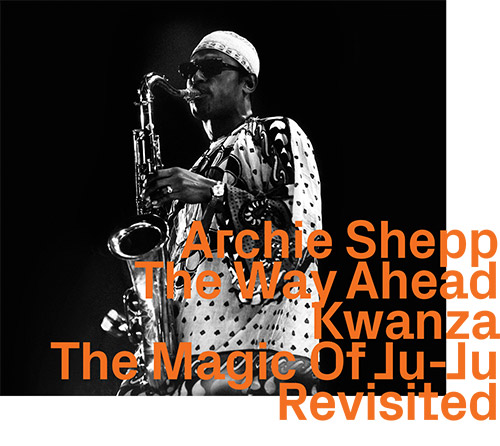


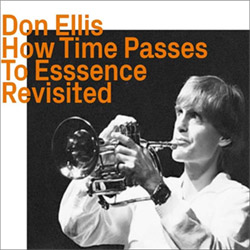
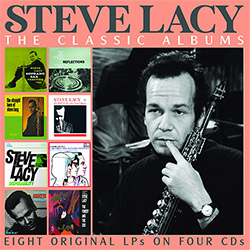

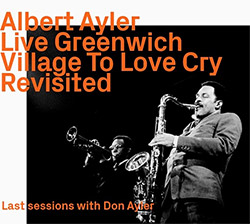

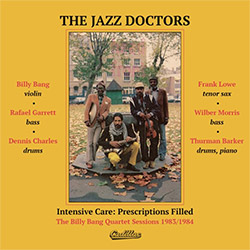
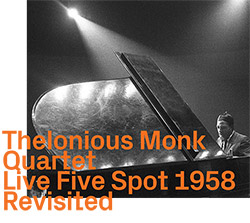
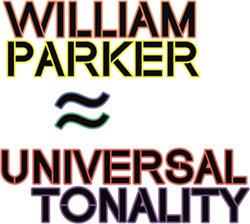
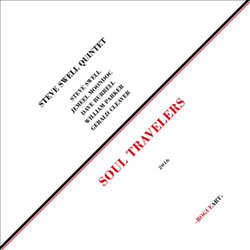
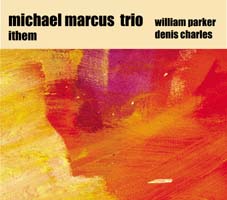




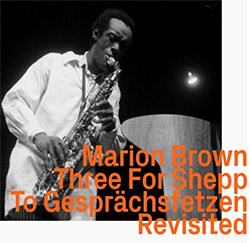
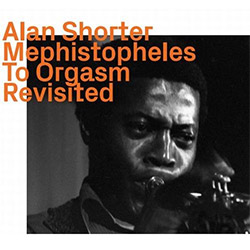

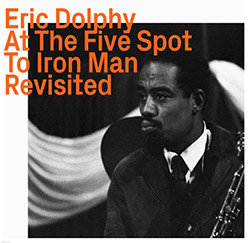
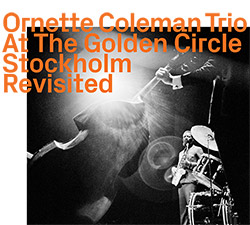

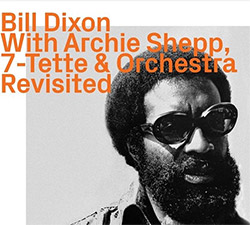
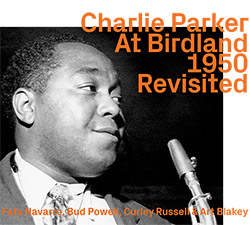






![BlueRing Improvisers: Materia [2 CDs]](https://www.teuthida.com/productImages/misc4/36513.jpg)








![Wheelhouse (Rempis / Adasiewicz / McBride): House And Home [VINYL]](https://www.teuthida.com/productImages/misc4/36462.jpg)
![+DOG+: The Light Of Our Lives [2 CDs]](https://www.teuthida.com/productImages/misc4/36009.jpg)


![Parker, Evan / Jean-Marc Foussat: Insolence [VINYL]](https://www.teuthida.com/productImages/misc4/36398.jpg)










![Deupree, Jerome / Sylvie Courvoisier / Lester St. Louis / Joe Morris: Canyon [2 CDs]](https://www.teuthida.com/productImages/misc4/36404.jpg)



![Eventless Plot | Haarvol: The Subliminal Paths [CASSETTE + DOWNLOAD]](https://www.teuthida.com/productImages/misc4/36232.jpg)









![Eventless Plot | Francesco Covarino: Methexis [CASSETTE + DOWNLOAD]](https://www.teuthida.com/productImages/misc4/36231.jpg)



![Das B (Mazen Kerbaj / Mike Majkowski / Magda Mayas / Tony Buck): Love [VINYL]](https://www.teuthida.com/productImages/misc4/36329.jpg)


![Eternities: Rides Again [CASSETTE]](https://www.teuthida.com/productImages/misc4/36247.jpg)
![Lopez, Francisco: Untitled (2021-2022) [2 CDs]](https://www.teuthida.com/productImages/misc4/36438.jpg)






![Money : Money 2 [2 CDs]](https://www.teuthida.com/productImages/misc4/35894.jpg)




![Klinga, Erik: Elusive Shimmer [VINYL]](https://www.teuthida.com/productImages/misc4/36258.jpg)
![CHANGES TO blind (Phil Zampino): Volume 9 - I Wave on a Fine Vile Mist [CD + DOWNLOAD]](https://www.teuthida.com/productImages/misc4/36061.jpg)

![Wallmart / Rubbish: Asset Protection [split CD]](https://www.teuthida.com/productImages/misc4/35900.jpg)


![+Dog+: The Family Music Book Vol. 5 [2 CDs]](https://www.teuthida.com/productImages/misc4/35897.jpg)
![Kuvveti, Deli : Kuslar Soyledi [CASSETTE w/ DOWNLOAD]](https://www.teuthida.com/productImages/misc4/36107.jpg)

![Brown, Dan / Dan Reynolds: Live At The Grange Hall [unauthorized][CASSETTE]](https://www.teuthida.com/productImages/misc4/36245.jpg)








![Palestine, Charlemagne / Seppe Gebruers: Beyondddddd The Notessssss [VINYL]](https://www.teuthida.com/productImages/misc4/36206.jpg)
![Palestine, Charlemagne / Seppe Gebruers: Beyondddddd The Notessssss [NEON GREEN VINYL]](https://www.teuthida.com/productImages/misc4/36207.jpg)

![Laubrock, Ingrid: Purposing The Air [2 CDs]](https://www.teuthida.com/productImages/misc4/35639.jpg)

![Yoko, Ono / The Great Learning Orchestra: Selected Recordings From Grapefruit [2 CDs]](https://www.teuthida.com/productImages/misc4/35841.jpg)









![Zorn, John / JACK Quartet: The Complete String Quartets [2 CDs]](https://www.teuthida.com/productImages/misc4/35609.jpg)

![Lonsdale, Eden: Dawnings [2 CDs]](https://www.teuthida.com/productImages/misc4/35480.jpg)



![Sorry For Laughing (G. Whitlow / M. Bates / Dave-Id / E. Ka-Spel): Rain Flowers [2 CDS]](https://www.teuthida.com/productImages/misc4/35985.jpg)

![Rolando, Tommaso / Andy Moor : Biscotti [CASSETTE w/ DOWNLOADS]](https://www.teuthida.com/productImages/misc4/36106.jpg)


![Electric Bird Noise / Derek Roddy: 8-10-22 [CD EP]](https://www.teuthida.com/productImages/misc4/35970.jpg)








![Elephant9 : Mythical River [VINYL]](https://www.teuthida.com/productImages/misc4/34624.jpg)



![Elephant9 with Terje Rypdal: Catching Fire [VINYL 2 LPs]](https://www.teuthida.com/productImages/misc4/35355.jpg)
![Deerlady (Obomsawin, Mali / Magdalena Abrego): Greatest Hits [VINYL]](https://www.teuthida.com/productImages/misc4/34876.jpg)







![Surplus 1980: Illusion of Consistency [CD]](https://www.teuthida.com/productImages/misc4/35069.jpg)
![Staiano, Moe: Away Towards the Light [VINYL + DOWNLOAD]](https://www.teuthida.com/productImages/misc4/35037.jpg)
![Coley, Byron: Dating Tips for Touring Bands [VINYL]](https://www.teuthida.com/productImages/misc4/17906.jpg)

![Lost Kisses: My Life is Sad & Funny [DVD]](https://www.teuthida.com/productImages/misc4/lostKissesDVD.jpg)